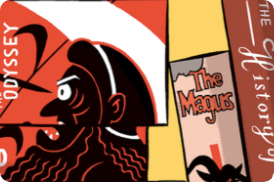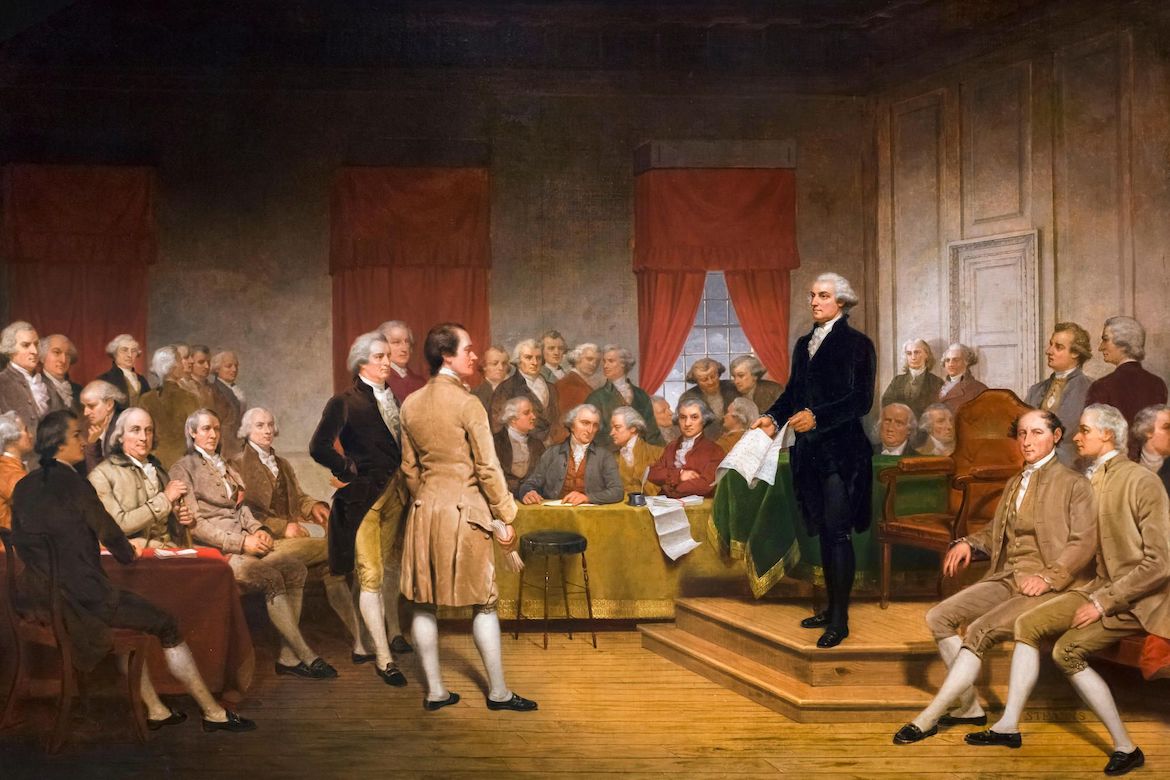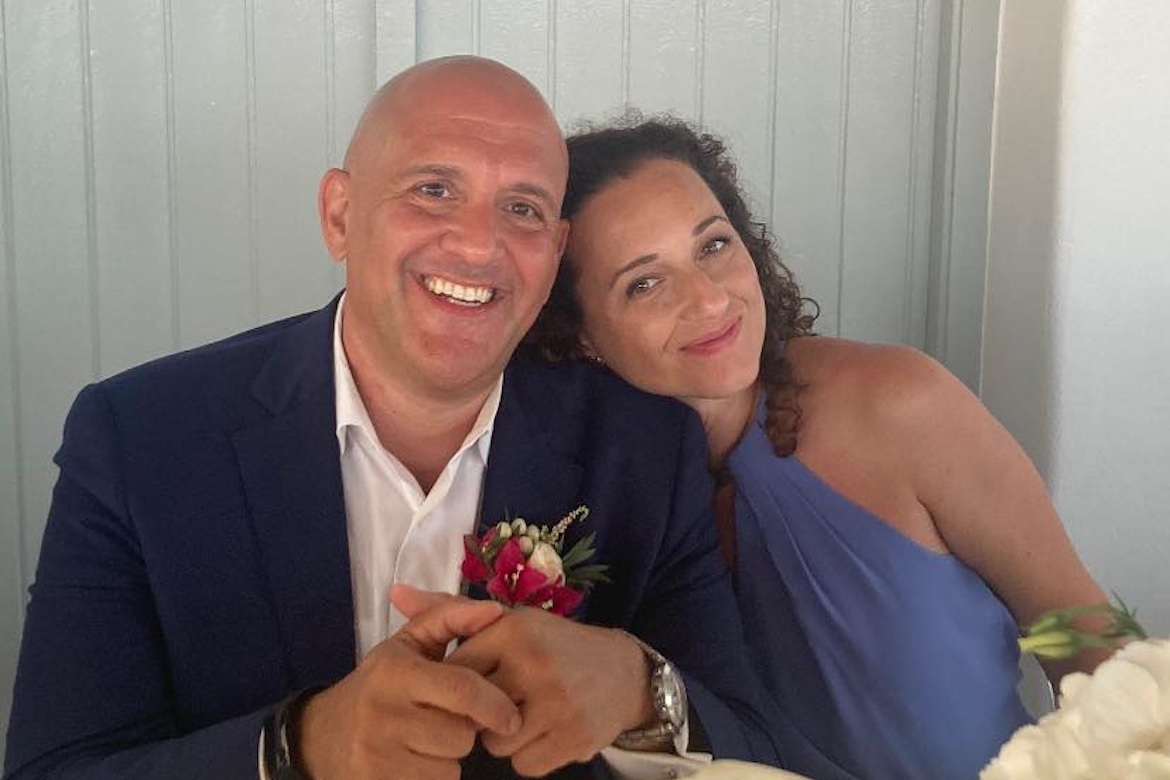Much has been said and written about the Greek influences on the founding of the United States. Entire books have been written on the topic, including the best known Greeks & Romans Bearing Gifts: How the Ancients Inspired the Founding Fathers by Carl J. Richard.
John Adams would often use Greek words in his letters to Thomas Jefferson, who admired many aspects of the Ancient Greeks. He could read and speak the language fluently.
When Alexander Hamilton entered King’s College (now Columbia University) in 1773, he was expected to already have a mastery of Greek and Latin grammar, be able to read three orations from Cicero and Virgil’s Aeneid in the original Latin, and be able to translate the first ten chapters of the Gospel of John from Greek into Latin.
When James Madison applied at the College of New Jersey (now Princeton), he was expected to be able to “write Latin prose, translate Virgil, Cicero, and the Greek gospels and [to have] a commensurate knowledge of Latin and Greek grammar.” Even before he entered, however, he had already read Vergil, Horace, Justinian, Nepos, Caesar, Tacitus, Lucretius, Eutropius, Phaedrus, Herodotus, Thucydides, and Plato.
The study of Latin and Greek, which is what the term “classical education” originally implied, was not something the American Founding Fathers learned in college, but something they were expected to know before they got there.
The founders knew these writers and quoted them prolifically. Their letters, in particular, display a wide familiarity with classical authors. The correspondence between educated men of the time was commonly sprinkled with classical quotations, usually in the original Latin or Greek. It was not only prevalent, but apparently sometimes annoying to the recipient. Jefferson used so many Greek quotes in his letters to Adams (who liked Latin better than Greek) that, on one occasion, Adams complained to him about it.
It is a well-known fact that literacy was prevalent in colonial times.
“A native of America who cannot read or write,” said John Adams, “is as rare an appearance…as a comet or an earthquake.” It is not nearly as well-known a fact, however, that early Americans with a formal education usually knew several other languages as well as their own.
The typical education of the time began in what we would call the 3rd Grade—at about age eight. Students who actually went to school were required to learn Latin and Greek grammar and, later, to read the Latin historians Tacitus and Livy, the Greek historians Herodotus and Thucydides, and to translate the Latin poetry of Virgil and Horace.
They were expected to know the language well enough to translate from the original into English and back again to the original in another grammatical tense. Classical Education also stressed the seven liberal arts: Latin, logic, rhetoric (the “trivium”), as well as arithmetic, geometry, astronomy, and music (the “quadrivium”).
Several of the founders, including Adams, attended Harvard. The sole academic requirements for admission to Harvard University in the 1640s were as follows: “When any scholar is able to read Tully [Cicero] or such like classical Latin author ex tempore and make and speak true Latin in verse and prose suo (ut aiunt) Marte [by his own power, as they say], and decline perfectly the paradigms of nouns and verbs in the Greek tongue, then may he be admitted into the college, nor shall any claim admission before such qualification.”
No ACT or SAT scores. No application essays. Just proof you knew Latin and Greek.
Of the 55 delegates to the Constitutional Convention, 30 of them were college graduates, an astounding number for the time.
But what of those who were not college graduates, such as George Washington? Were they influenced in any way by classical education? In Washington’s case, although he had little formal education, he admired Classical thinkers greatly.
Even many who had little formal education were often quite knowledgeable in Classical subjects. The Virginian George Wythe, who later became known as the “Teacher of Liberty,” was educated in his backwoods home by his mother. His Greek was accounted by his contemporaries to have been perfect.
Of course there were also those opposed to the influence of the Classical languages.
There was much antipathy toward the British and some colonists— new Americans— wanted to dump the English language simply out of spite. There reportedly were a few superpatriots who argued for adopting Hebrew, French or Greek because they were the languages of God, rationality and democracy, respectively.
Although there are numerous “rumors” floating around the internet about Greek “almost” becoming the official language of the United States and the vote coming down to one Benjamin Franklin, who argued against it and casting the deciding the final “no” vote— there is nothing in US historical records to prove this, or that a vote ever took place.
But, it was discussed amongst the founding fathers, according to several written sources.
A 19th century American writer and scholar Charles Astor Bristed wrote in 1855 that there was talk amongst the founding fathers, some of whom were proposing Greek be the official American language.
“It is still on record that a legislator seriously proposed that the young republic should complete its independence by adopting a different language from that of the mother country, [like] ‘the Greek for instance.’ But this proposition was summarily extinguished by a suggestion of a fellow representative (Roger Sherman of Connecticut, delegate to the Continental Congress and a member of the committee that drafted the Declaration of Independence) that “it would be more convenient for us to keep the language as it was, and make the English speak Greek.”















